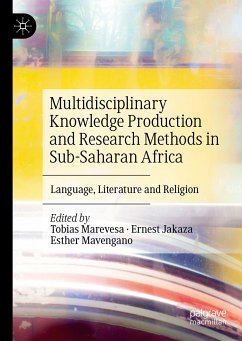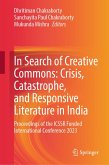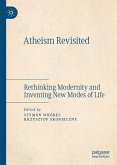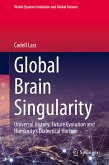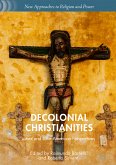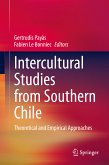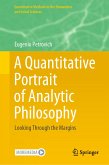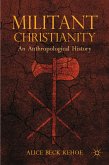Multidisciplinary Knowledge Production and Research Methods in Sub-Saharan Africa (eBook, PDF)
Language, Literature and Religion
Redaktion: Marevesa, Tobias; Mavengano, Esther; Jakaza, Ernest
105,95 €
105,95 €
inkl. MwSt.
Sofort per Download lieferbar

53 °P sammeln
105,95 €
Als Download kaufen

105,95 €
inkl. MwSt.
Sofort per Download lieferbar

53 °P sammeln
Jetzt verschenken
Alle Infos zum eBook verschenken
105,95 €
inkl. MwSt.
Sofort per Download lieferbar
Alle Infos zum eBook verschenken

53 °P sammeln
Multidisciplinary Knowledge Production and Research Methods in Sub-Saharan Africa (eBook, PDF)
Language, Literature and Religion
Redaktion: Marevesa, Tobias; Mavengano, Esther; Jakaza, Ernest
- Format: PDF
- Merkliste
- Auf die Merkliste
- Bewerten Bewerten
- Teilen
- Produkt teilen
- Produkterinnerung
- Produkterinnerung

Bitte loggen Sie sich zunächst in Ihr Kundenkonto ein oder registrieren Sie sich bei
bücher.de, um das eBook-Abo tolino select nutzen zu können.
Hier können Sie sich einloggen
Hier können Sie sich einloggen
Sie sind bereits eingeloggt. Klicken Sie auf 2. tolino select Abo, um fortzufahren.

Bitte loggen Sie sich zunächst in Ihr Kundenkonto ein oder registrieren Sie sich bei bücher.de, um das eBook-Abo tolino select nutzen zu können.
- Geräte: PC
- ohne Kopierschutz
- eBook Hilfe
- Größe: 3.95MB
Andere Kunden interessierten sich auch für
![In Search of Creative Commons: Crisis, Catastrophe, and Responsive Literature in India (eBook, PDF) In Search of Creative Commons: Crisis, Catastrophe, and Responsive Literature in India (eBook, PDF)]() In Search of Creative Commons: Crisis, Catastrophe, and Responsive Literature in India (eBook, PDF)161,95 €
In Search of Creative Commons: Crisis, Catastrophe, and Responsive Literature in India (eBook, PDF)161,95 €![Atheism Revisited (eBook, PDF) Atheism Revisited (eBook, PDF)]() Atheism Revisited (eBook, PDF)105,95 €
Atheism Revisited (eBook, PDF)105,95 €![Global Brain Singularity (eBook, PDF) Global Brain Singularity (eBook, PDF)]() Cadell LastGlobal Brain Singularity (eBook, PDF)73,95 €
Cadell LastGlobal Brain Singularity (eBook, PDF)73,95 €![Decolonial Christianities (eBook, PDF) Decolonial Christianities (eBook, PDF)]() Decolonial Christianities (eBook, PDF)97,95 €
Decolonial Christianities (eBook, PDF)97,95 €![Intercultural Studies from Southern Chile (eBook, PDF) Intercultural Studies from Southern Chile (eBook, PDF)]() Intercultural Studies from Southern Chile (eBook, PDF)40,95 €
Intercultural Studies from Southern Chile (eBook, PDF)40,95 €![A Quantitative Portrait of Analytic Philosophy (eBook, PDF) A Quantitative Portrait of Analytic Philosophy (eBook, PDF)]() Eugenio PetrovichA Quantitative Portrait of Analytic Philosophy (eBook, PDF)89,95 €
Eugenio PetrovichA Quantitative Portrait of Analytic Philosophy (eBook, PDF)89,95 €![Militant Christianity (eBook, PDF) Militant Christianity (eBook, PDF)]() A. KehoeMilitant Christianity (eBook, PDF)40,95 €
A. KehoeMilitant Christianity (eBook, PDF)40,95 €-
-
-
Dieser Download kann aus rechtlichen Gründen nur mit Rechnungsadresse in A, B, BG, CY, CZ, D, DK, EW, E, FIN, F, GR, HR, H, IRL, I, LT, L, LR, M, NL, PL, P, R, S, SLO, SK ausgeliefert werden.
Produktdetails
- Produktdetails
- Verlag: Springer International Publishing
- Seitenzahl: 229
- Erscheinungstermin: 25. August 2023
- Englisch
- ISBN-13: 9783031355318
- Artikelnr.: 68708276
- Verlag: Springer International Publishing
- Seitenzahl: 229
- Erscheinungstermin: 25. August 2023
- Englisch
- ISBN-13: 9783031355318
- Artikelnr.: 68708276
- Herstellerkennzeichnung Die Herstellerinformationen sind derzeit nicht verfügbar.
Tobias Marevesa is Research Fellow at the Research Institute for Theology and Religion, UNISA, South Africa. Ernest Jakaza is a Senior Lecturer in the Department of Media, Communication, Film and Theatre Arts at Midlands State University, Zimbabwe and Research Fellow at the University of South Africa (UNISA), South Africa. . Esther Mavengano is a lecturer who teaches Linguistics and Literature in the Department of English and Media Studies, Faculty of Arts at Great Zimbabwe University in Masvingo, Zimbabwe. She is a Research Fellow at the Research Institute for Theology and Religion, College of Human Sciences, UNISA, South Africa, and also a von Humboldt Postdoctoral Research Fellow at TU (Techische Universistat Dresden) Institute of English and American Studies, Department of English, Germany.
1. New directions in multidisciplinary knowledge production in sub-Saharan Africa: An introduction.- 2. From 'sitting on the fence' to rhizomatic thinking: An Appraisal of the heuristic 'lines of flight' in multi/inter disciplinary contemporary stylistics.- 3. Rupturing the traditional thought in search of novel heuristic voyages in New Testament studies. New reflections on Narratological methodology.- 4. Postcolonial African feminist research agenda: African women theologians' search for liberating paradigms in oral and written religious and cultural texts.- 5. Discipline, decolonisation and agency.- 6. (Re) thinking and (re)theorising 'multi' and its futures in academic discourse studies.- 7. 'Collective Intelligence' a precursor for multidisciplinary research in Africa: An Appreciative Inquiry Perspective.- 8. Multi-disciplinary Era and shifting methodological pathways in New Testament Studies: A Stylistic paradigm.- 9. Decentring research in African Universities.- 10. "...Get out, you seer! Go back to the Land of Judah. Earn your bread there and do your prophesying there" (Amos 7:12). Deflecting Traditional Disciplinary Boundaries in Biblical Studies.- 11. Methodological and epistemological misconceptions about Mixed Methods Approach amongst university students.- 12. Packaging new wine into old wineskins: Possibilities and challenges of using virtual Ethnography in knowledge production in Zimbabwe.- 13. An interdisciplinary research approach: opportunities and challenges from a Zimbabwean perspective.- 14. Researching Religious Indigenous Knowledge in Zimbabwe: Methodological Issues for African Scholars.- 15. Old Methods and New Methods in sub-Saharan Africa: The Recap.
1. New directions in multidisciplinary knowledge production in sub-Saharan Africa: An introduction.- 2. From 'sitting on the fence' to rhizomatic thinking: An Appraisal of the heuristic 'lines of flight' in multi/inter disciplinary contemporary stylistics.- 3. Rupturing the traditional thought in search of novel heuristic voyages in New Testament studies. New reflections on Narratological methodology.- 4. Postcolonial African feminist research agenda: African women theologians' search for liberating paradigms in oral and written religious and cultural texts.- 5. Discipline, decolonisation and agency.- 6. (Re) thinking and (re)theorising 'multi' and its futures in academic discourse studies.- 7. 'Collective Intelligence' a precursor for multidisciplinary research in Africa: An Appreciative Inquiry Perspective.- 8. Multi-disciplinary Era and shifting methodological pathways in New Testament Studies: A Stylistic paradigm.- 9. Decentring research in African Universities.- 10. "...Get out, you seer! Go back to the Land of Judah. Earn your bread there and do your prophesying there" (Amos 7:12). Deflecting Traditional Disciplinary Boundaries in Biblical Studies.- 11. Methodological and epistemological misconceptions about Mixed Methods Approach amongst university students.- 12. Packaging new wine into old wineskins: Possibilities and challenges of using virtual Ethnography in knowledge production in Zimbabwe.- 13. An interdisciplinary research approach: opportunities and challenges from a Zimbabwean perspective.- 14. Researching Religious Indigenous Knowledge in Zimbabwe: Methodological Issues for African Scholars.- 15. Old Methods and New Methods in sub-Saharan Africa: The Recap.
